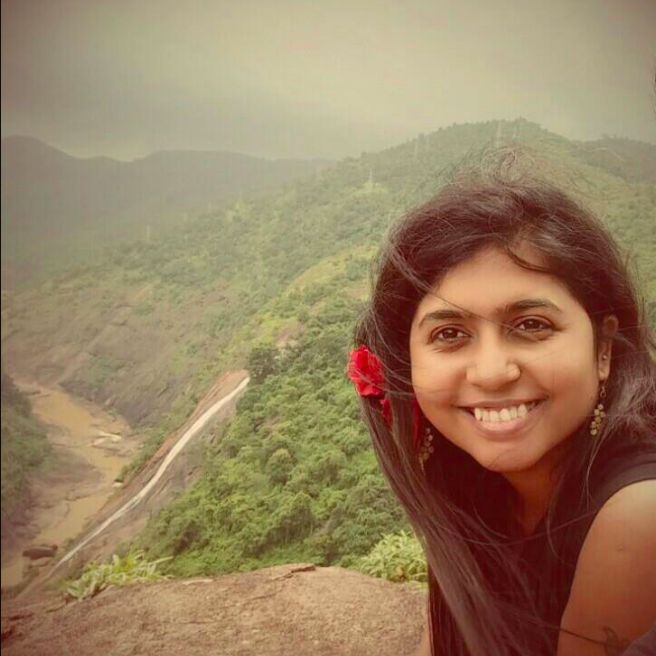No direction in life? We've got you. From exploring your curiosity to visualizing the possibilities, Sonia Vadlamani explains 8 ways to start silencing those ruminating 'I don't know what I want to with my life' thoughts. And it all starts with asking yourself more questions.
It’s 2 a.m. You have an early start, yet here you are, scrolling mindlessly through social media, wondering how everyone else has their life figured out. Their perfectly curated Instagram feeds showcase them thriving at their dreams jobs and living in their dream homes, while you’re haunted by the thought that keeps going around in your head: “I don’t know what to do with my life.”
While this feeling may seem exclusive to you, the truth is that it’s far more common. A 2021 Oracle and Workplace Intelligence survey of almost 15,000 employees across 13 countries showed that about 75% people feel “stuck” in their professional lives, while 76% felt the same about their personal lives.
Here’s the thing – feeling directionless and not knowing what comes next isn’t a permanent roadblock, but instead, it should be seen as a starting point for something new. It’s a chance for you to pivot, explore new possibilities and carve out a path that can alter your life – if you’re willing to embrace the uncertainty and push through it with intention.
What Should I Do With My Life?
Many of us experience periods of feeling of lost and directionless in life. While this uncertainty can feel disconcerting at the time, it may indicate the need for personal growth. Indeed, a 2023 study of 309 participants revealed that although uncertainty is often accompanied by psychological distress, individuals with higher Personal Growth Initiative (PGI) are better able to take charge of their own progress.

Feeling lost in the dark? Find your direction by asking questions
In other words, feeling lost or wondering, “what should I do with my life” is common, especially during big life transitions. However, those who actively seek change or growth through such uncertainty by learning, pivoting, experimenting, or planning tend to cope better than those with a lower tolerance for ambiguity.
Questions to Ask Yourself
Asking yourself better questions – rather than simply pondering over the possible correct answers – can help steer you in the right direction. In fact, renowned developmental psychologist James Marcia, in his identity development theory – and especially the “identity moratorium” status – proposed that active exploration during uncertain times is key to personal growth.
This exploration can happen through strategic self-inquiry – a keen observation of your goals, values, interests, passions, and behavioral patterns can help you gather useful data.
Some questions to ask yourself when you catch yourself thinking “I don’t know what I want to do with my life” can include:
- What did the “child me” want to do before the “adult me” or others decided what I should be doing?
- What would I do in a day if money weren’t a concern?
- What activities make me lose track of time?
- If I could, what are some problems in the world that I really wish to solve?
- Which activities help me feel genuinely aligned with my authentic self?
- Who are my role models, and why do I admire them?
- If failure was out of question, what would I love to do?
- What are some of my skills that make people say, “Wow, you’re really good at that!”
- Which activities make the day truly meaningful?
- What do I want to be remembered for when I’m gone?
- What are the top three skills I’d like to master next year?
Eight Strategies to Work Out What to Do With Your Life
While these questions help you to contemplate, the science-backed strategies below help you take necessary action and find your footing when that “I don’t know what to do with my life” feeling is taking over.
1. Pay attention to your natural gifts and interests
The answers you uncover through reflection may have helped you realize your natural talents and gifts. What comes easily to you that others struggle with? What do people often compliment you for? It might be your ability to manage people well, or perhaps your analytical brain that offers solutions more readily.
“Feeling lost or wondering, “what should I do with my life” is common, but it may indicate the need for personal growth.”
Pay close attention to your innate strengths and natural talents, as these can serve as useful clues toward a path that aligns with who you really are.
2. Follow what sparks your curiosity
“Follow your passion,” they say, but what if you don’t know what your passion is? Exploring your curiosity can be the key to unlocking what sparks joy and can sustain your interest over time. Indeed, a study published in Journal of Educational Sciences & Psychology also found that in addition to grit and determination, curiosity is a primary predictor for leading fulfilling and satisfying lives.
3. Learn to embrace the unknown
It’s true that the human mind dislikes uncertainty. Research also shows that perceived threat and uncertainty can trigger neurological stress and anxiety, often negatively impacting decision-making in adverse situations.
However, here’s the contradicting truth – learning to tolerate ambiguity better can spark creativity and boost resilience, making way for personal growth. Make it a conscious practice to sit with ambiguity instead of fumbling for certainty. Remind yourself: “This is temporary and I’m equipped to deal with it until the answer comes to me.”
4. Experiment with new choices
The sheer amount of choices available in this technology-driven era is crazy, and decision-fatigue can literally tire us. It’s therefore often impractical to simply think to gain clarity – you need to take action to get there by experimenting with various options.
Avoid overcommitting to something on a whim – opt for a short-term contract instead. Try volunteering or shadowing someone in a role that inspires you. These experiments can help you gather essential insights into what excites and fulfils you. They’re breadcrumbs that may lead you to something more meaningful, energizing, and lasting.

Volunteering, for example, at an animal shelter, opens up new experiences
5. Reflect on your purpose
We often confuse purpose with happiness – indeed, chasing happiness may seem more important than finding one’s purpose. However, research suggests that living a purpose-driven, meaningful life is a fundamental human need that influences our psychological and physical well-being, in addition to serving as a driving force.
RELATED:
- Power of Purpose: Rediscover Your True Role In Life
- What's the Point of Life? The 3 Questions You Must Ask Yourself
- The 7 Steps to Take When Nothing Makes You Happy Anymore
Ask yourself: What would make me feel that my time mattered here? What would I like to be known for, say 10 years from now? While this probing may feel uncomfortable at first, it can help you cut through the noise and arrive at a clear, actionable answer for the persistent thought: “I don’t know what to do with my life.”
6. Seek inspiration
Look at people who inspire you and motivate you towards a path that can fulfil your purpose or desire to make a difference. Whether it’s public figures, your contemporaries or mentors, engaging with them or learning their journey can provide you valuable insights and direction. Their lessons can help you gain clarity and take action to overcome the uncertainty of what to do with your life.
7. Visualize the possibilities
Creating a vision board to reflect your aspirations, feelings, values, and experiences is a practical and fun way to recenter yourself when feeling directionless. In fact, an experiment conducted on 65 tennis players concluded that adding imagery and visualization practices substantially improved performance and chances of success.
“Pay close attention to your innate strengths and natural talents, as these can serve as useful clues toward a path that aligns with who you really are.”
Visualization can help you explore your potential life path that’s best aligned with your authentic self. Imagine the day-to-day experience of different life paths that appeal to you. Break it down further into daily and hourly visual accounts – do you like what you see well enough to pursue this path?

Unsure what to do with your life? Start with a vision board
8. Surround yourself with positive people
Life will always throw you unexpected twists and curveballs. However, research points that people with an optimistic attitude tend to be more resilient and “bounce back” easily from negative experiences.
RELATED: Bored With Life? Re-engage Yourself With These 8 Ideas
Also, positivity begets positivity – sometimes the most difficult phases in life become easier to navigate with the help of the right support group. Surrounding yourself with more positive-minded people can help you navigate life’s challenges with greater ease, perspective, and grace.
What Happens to a Person With No Purpose?
People who find themselves thinking, “I have no idea what I’m doing” for an extended period may begin to feel like they’re drifting through life aimlessly. The lack of a unique purpose may make you feel unfulfilled, empty, and dissatisfied with life.
Research indicates that the frustration arising from a lack of fulfillment can result in conditions like depression and anxiety, and can potentially lead to avoidance behaviors that steer you further away from positive goals and outcomes.
However, not knowing the point of life doesn’t necessarily mean that you’re living your life without purpose. Taking a step back because you refuse to settle for a life that feels hollow, reflecting on your values and goals, and seeking meaning with renewed perspective is, in itself, a purposeful direction.
Takeaway: What Should I Do With My Life?
It’s important to remember that finding purpose in life can look different for everyone – there is no specific roadmap to follow. But it’s never too late to start.
Feeling offtrack or lost in life isn’t a dead end, but a path to keen exploration and self-discovery. Applying the strategies mentioned here can help you gain insights to unlock holistic, strategic, and sustainable answers to one of the most unsettling questions we all face in life at some point at another. •
Images pathdoc, andysanchevko, New Africa
happiness.com | The fine art of being: learn, practise, share
Are you a happiness.com member yet? Sign up for free and enjoy:
■ our happiness magazine with practical life tips
■ share and support in our happiness forum
Written by Sonia Vadlamani
 Fitness and healthy food blogger, food photographer and stylist, travel-addict and future-self journaler. Sonia loves to write and has resolved to dedicate her life to revealing how easy and important it is to be happier, stronger and fitter each day. Follow her daily pursuits at FitFoodieDiary or on Instagram.
Fitness and healthy food blogger, food photographer and stylist, travel-addict and future-self journaler. Sonia loves to write and has resolved to dedicate her life to revealing how easy and important it is to be happier, stronger and fitter each day. Follow her daily pursuits at FitFoodieDiary or on Instagram.





Join the conversation
You are posting as a guest. If you have an account, sign in now to post with your account.
There are no comments to display.